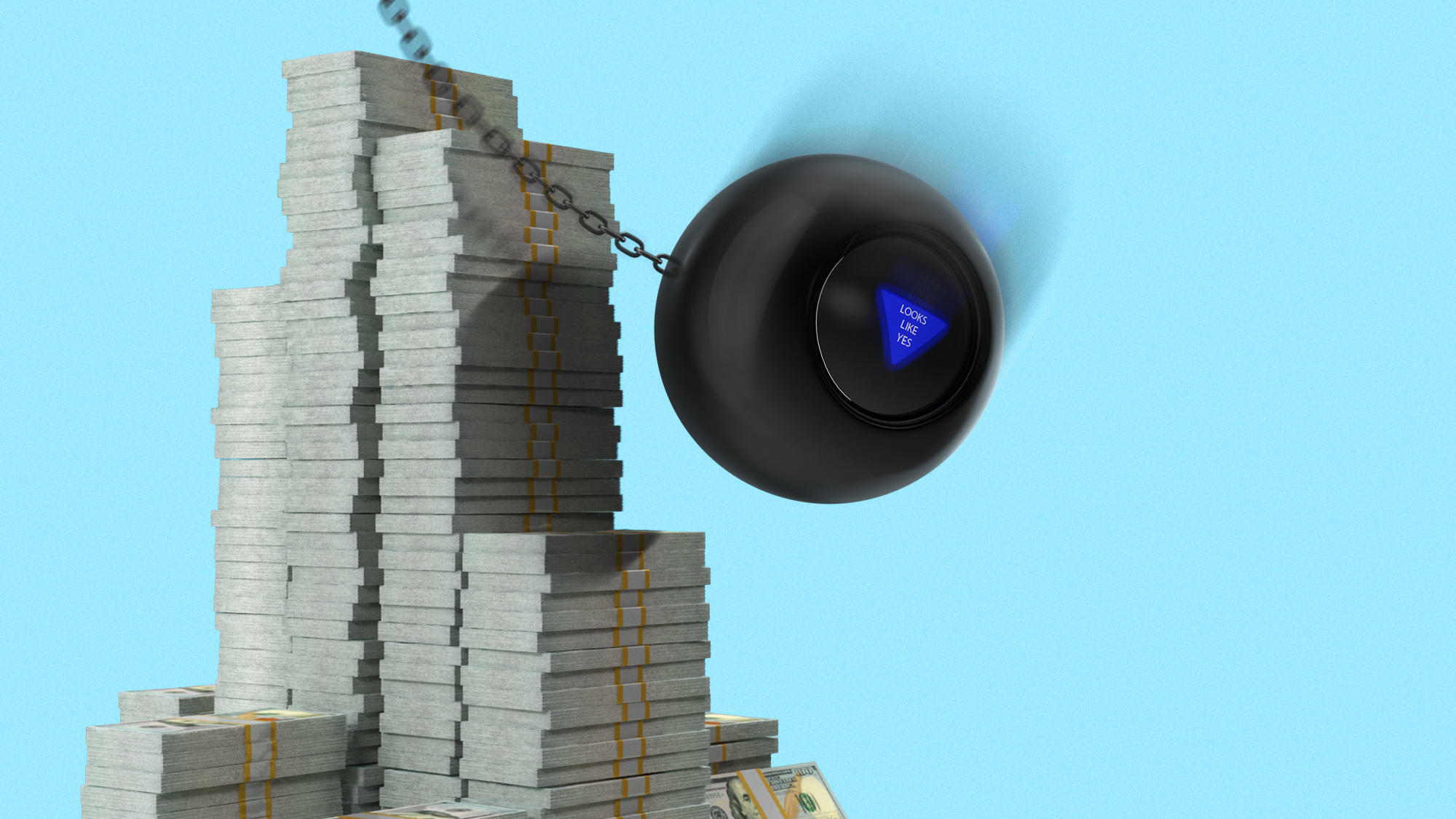Is the US in recession?
‘Unofficial signals’ are flashing red


A free daily email with the biggest news stories of the day – and the best features from TheWeek.com
You are now subscribed
Your newsletter sign-up was successful
It often seems that economists are perpetually warning us about the next U.S. recession. One influential analyst says an economic slowdown is already a fact of life for many Americans.
Twenty-two states are “now experiencing persistent economic weakness and job losses that are likely to continue," said Mark Zandi, the chief economist at Moody’s Analytics, to MarketWatch. The overall American economy is “on the precipice. Government data released before the shutdown showed the “broader economy was in pretty good shape,” said MarketWatch, but some are skeptical. The gross domestic product might be rising, said Zandi, but the “job market is weaker.”
Other observers are warning of a bifurcated “K-shaped economy,” said CNBC. Wealthy Americans are “engaging their purchasing power,” but lower- and middle-class consumers are struggling with “rising costs on daily essentials like groceries and gas.” Meanwhile, “unofficial signals” like rises in missed car payments and women leaving the workforce are offering “early warning signs about what is to come,” said Quartz.
The Week
Escape your echo chamber. Get the facts behind the news, plus analysis from multiple perspectives.

Sign up for The Week's Free Newsletters
From our morning news briefing to a weekly Good News Newsletter, get the best of The Week delivered directly to your inbox.
From our morning news briefing to a weekly Good News Newsletter, get the best of The Week delivered directly to your inbox.
What did the commentators say?
“This moment feels much like late 2007 and early 2008,” said Ball State University economics professor Michael J. Hicks at The Indianapolis Star. For a time during that period, the economy felt stable “even as we entered recession.” Today is similar. While the gross domestic product is still rising, driven by the AI boom, “nearly every other measure of economic activity has stagnated or is in deep decline.” The United States may already be in recession. But “we don’t feel it yet.”
The U.S. economy is in a “weird place right now,” said economist Paul Krugman at his newsletter. Policymakers are “flying blind” because of the government shutdown and unemployment is “relatively low by historical standards.” And Americans “feel very bad about the economy,” with consumer sentiment surveys rivaling the lows of the Great Recession. One problem is that President Donald Trump’s “wildly erratic policies” are creating “huge uncertainty” for businesses and consumers. We may not be in a recession yet, but the “frozen state of the U.S. economy has already made life much worse for many workers.”
What next?
The government shutdown is “complicating the Fed’s ability to help the economy,” said CNN. The Federal Reserve “relies heavily on official economic statistics” from the government to make decisions about interest rates to help goose or slow down the American economy, but the shutdown has “effectively cut off access to that data.” The available information is not great, though, with August data showing the “weakest pace of hiring since 2010.” The Fed is expected to announce its latest policies at a meeting on Oct. 29.
Americans are not happy with all of this. A new poll from the Public Religion Research Institute shows that most voters — including nearly 30% of Republicans — gave the president “low marks on the economy,” said Axios. That dissatisfaction could “test the durability of Trump’s support.”
A free daily email with the biggest news stories of the day – and the best features from TheWeek.com
Joel Mathis is a writer with 30 years of newspaper and online journalism experience. His work also regularly appears in National Geographic and The Kansas City Star. His awards include best online commentary at the Online News Association and (twice) at the City and Regional Magazine Association.
-
 The Olympic timekeepers keeping the Games on track
The Olympic timekeepers keeping the Games on trackUnder the Radar Swiss watchmaking giant Omega has been at the finish line of every Olympic Games for nearly 100 years
-
 Will increasing tensions with Iran boil over into war?
Will increasing tensions with Iran boil over into war?Today’s Big Question President Donald Trump has recently been threatening the country
-
 Corruption: The spy sheikh and the president
Corruption: The spy sheikh and the presidentFeature Trump is at the center of another scandal
-
 Is the US in a hiring recession?
Is the US in a hiring recession?Today's Big Question The economy is growing. Job openings are not.
-
 Trump wants a weaker dollar, but economists aren’t so sure
Trump wants a weaker dollar, but economists aren’t so sureTalking Points A weaker dollar can make imports more expensive but also boost gold
-
 Did markets’ ‘Sell America’ trade force Trump to TACO on Greenland?
Did markets’ ‘Sell America’ trade force Trump to TACO on Greenland?Today’s Big Question Investors navigate a suddenly uncertain global economy
-
 Will Trump’s 10% credit card rate limit actually help consumers?
Will Trump’s 10% credit card rate limit actually help consumers?Today's Big Question Banks say they would pull back on credit
-
 Can Trump make single-family homes affordable by banning big investors?
Can Trump make single-family homes affordable by banning big investors?Talking Points Wall Street takes the blame
-
 How prediction markets have spread to politics
How prediction markets have spread to politicsThe explainer Everything’s a gamble
-
 What will the US economy look like in 2026?
What will the US economy look like in 2026?Today’s Big Question Wall Street is bullish, but uncertain
-
 Tariffs have American whiskey distillers on the rocks
Tariffs have American whiskey distillers on the rocksIn the Spotlight Jim Beam is the latest brand to feel the pain
